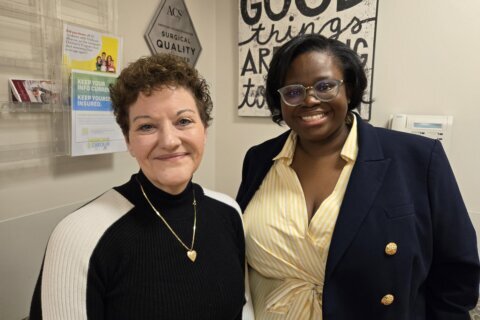Mental health challenges for veterans can look different for each individual, and treatment can, too.
The Veterans Know campaign aims to let vets know help is available and how to get it. It helps veterans connect with others with shared experiences.
“There’s hundreds of videos of veterans from all different backgrounds and identities, military service eras, and branches, who were talking about their personal challenges with difficult life experiences,” said Dr. Chris Loftis director of the VA/U.S. Department of Defense (DOD) mental health collaboration within the Veterans Health Administration Office of Mental Health and Suicide Prevention.
Loftis added, “But then more importantly, talking about how they got help, how they began to talk to their family members about what they’re going through. And it’s particularly valuable, useful for veterans who may not have the language to talk about what they’re going through. By listening to the stories on MakeTheConnection.net, they will figure out how to understand what they’re going through, and how to talk to others about it so that they can get help.”

Loftis acknowledges there can be stigma around seeking mental health help.
Veterans may have doubts about treatment, they may have concerns about the impact of treatment on their lives, or they may just be skeptical that anything can be done. They may have a mindset that they’re supposed to grin and bear it, maintain discipline and not let anyone think they’re vulnerable.
But, Loftis said the stories of the veterans on MakeTheConnection.net show that it’s a sign of strength to reach out and seek help.
Warning signs veterans or their family members should look for include:
- Significant changes in behavior or mood.
- Being quick to anger.
- Withdrawing from family members and friends.
- Feeling irritated more often than usual.
- Nightmares and,
- Flashbacks or,
- Trouble sleeping.
- Drinking or using drugs more.
“Veterans may also need support if they feel like they aren’t living their fullest life or if they are avoiding regular activities that they typically enjoy,” he said. “That’s a good time for family members to start talking to their veterans. And don’t be discouraged if you tried before and haven’t had the reaction that you were looking for. It can be a difficult conversation to have. But it’s an important first step toward getting help.”
Getting help can take many forms.
“That’s not just treatment; that’s not just inpatient, outpatient, residential treatment, clinical treatment, but that’s also reconnecting with other veterans, reaching out to veterans groups, maybe reconnecting with your motorcycle club, or some recreational club that you used to be part of, but really reliving re-finding that passion that gave you purpose and energy in your life,” Loftis said.
As for treatment options, Loftis emphasizes that there’s no “one size fits all.”
“You can start small, you can start by reconnecting with friends and family members, you can start by reaching out to veterans groups, you don’t have to start with therapy. And if you do, and are open to doing therapy, there’s just a many, many options from cognitive behavioral therapy, to forms of therapy to help with PTSD. There’s just a world of options for getting help. And so the important thing is just to inspire and encourage a veteran in your life to take that first step,” Loftis said.








